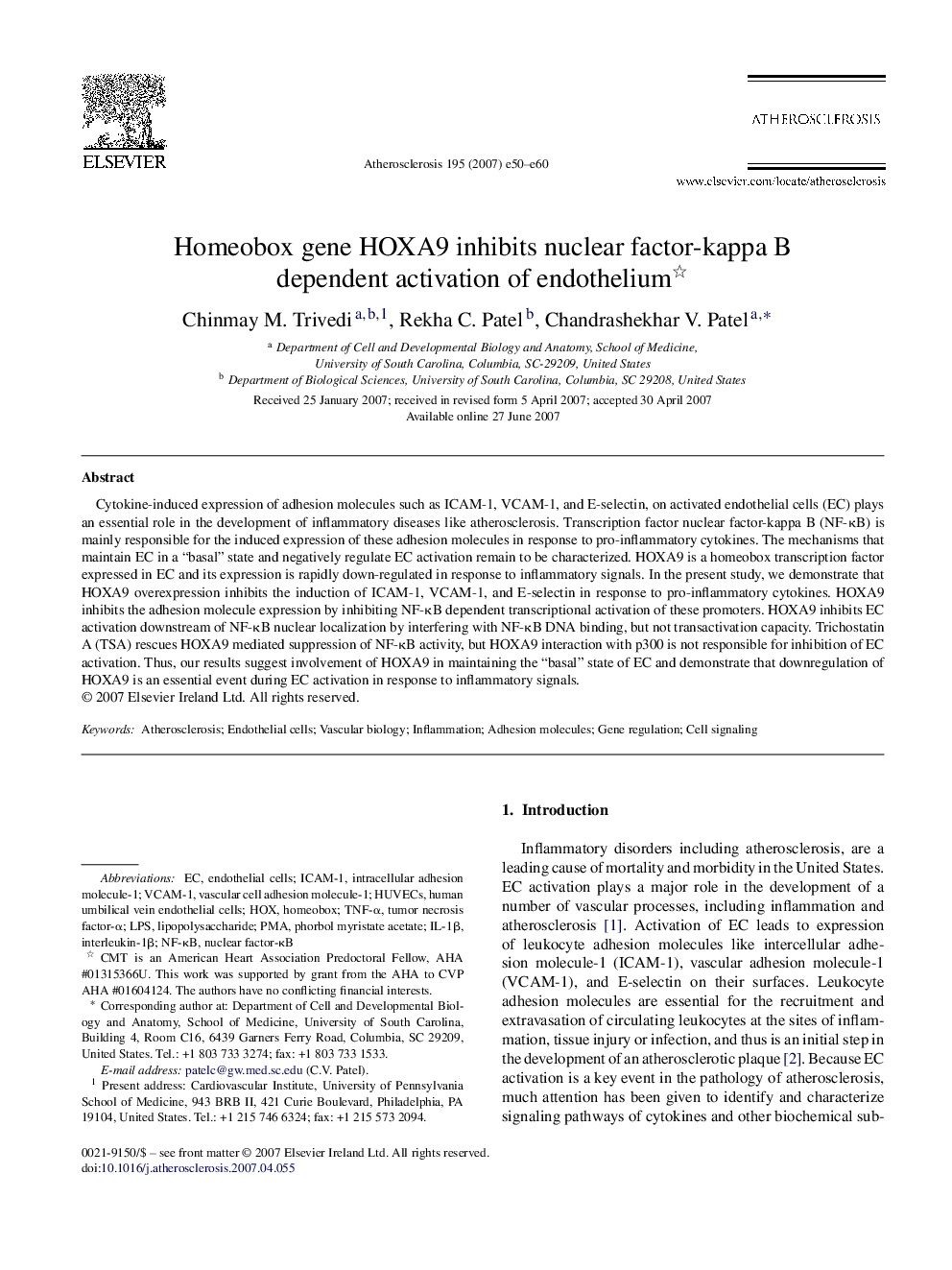| Article ID | Journal | Published Year | Pages | File Type |
|---|---|---|---|---|
| 2894212 | Atherosclerosis | 2007 | 11 Pages |
Cytokine-induced expression of adhesion molecules such as ICAM-1, VCAM-1, and E-selectin, on activated endothelial cells (EC) plays an essential role in the development of inflammatory diseases like atherosclerosis. Transcription factor nuclear factor-kappa B (NF-κB) is mainly responsible for the induced expression of these adhesion molecules in response to pro-inflammatory cytokines. The mechanisms that maintain EC in a “basal” state and negatively regulate EC activation remain to be characterized. HOXA9 is a homeobox transcription factor expressed in EC and its expression is rapidly down-regulated in response to inflammatory signals. In the present study, we demonstrate that HOXA9 overexpression inhibits the induction of ICAM-1, VCAM-1, and E-selectin in response to pro-inflammatory cytokines. HOXA9 inhibits the adhesion molecule expression by inhibiting NF-κB dependent transcriptional activation of these promoters. HOXA9 inhibits EC activation downstream of NF-κB nuclear localization by interfering with NF-κB DNA binding, but not transactivation capacity. Trichostatin A (TSA) rescues HOXA9 mediated suppression of NF-κB activity, but HOXA9 interaction with p300 is not responsible for inhibition of EC activation. Thus, our results suggest involvement of HOXA9 in maintaining the “basal” state of EC and demonstrate that downregulation of HOXA9 is an essential event during EC activation in response to inflammatory signals.
